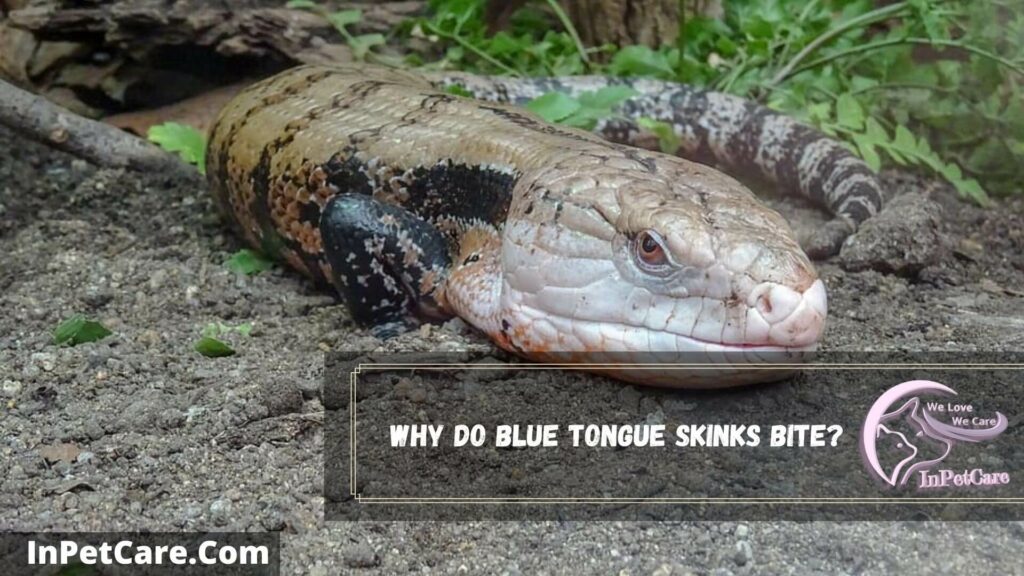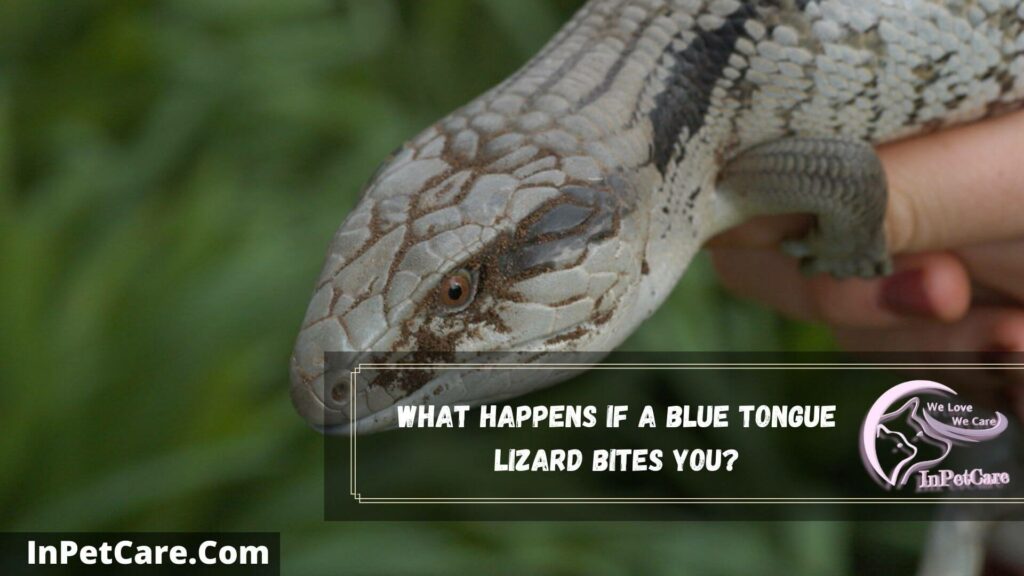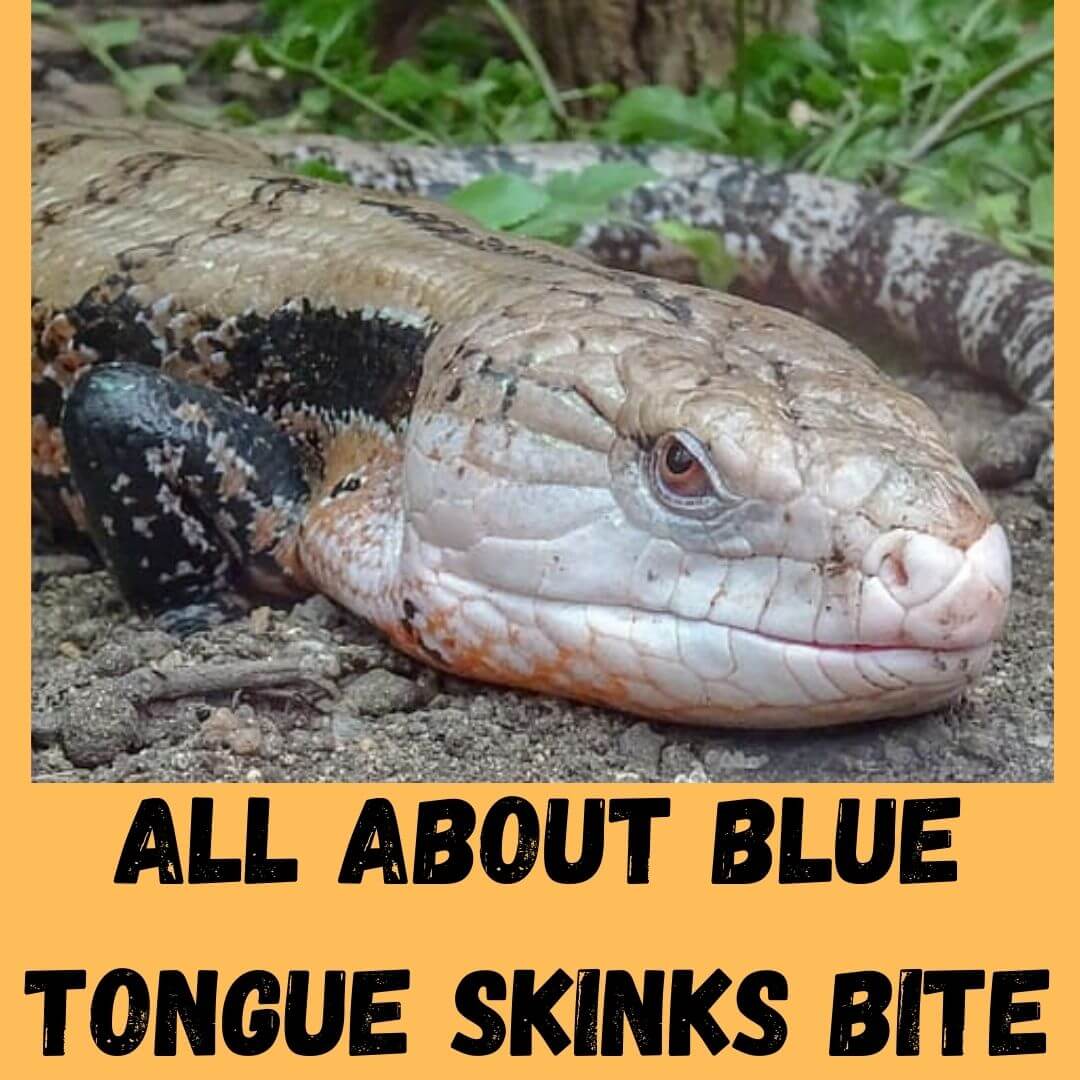Many new and prospective owners can get worried about a bite from a blue tongue skink. This is something that I understand & which is why I will address everything about skink bite. But, Do Blue Tongue Skinks Bite? If so, what to do.
In this article, I am going to answer do blue tongue skink bite. Interestingly, blue tongue skinks bite is one of the most popular questions we get through emails. Mostly a bite from a blue tongue skink concerns the new owners due to their unique temperament and prehistoric look.
Here you will learn if blue tongue skink bites, why skinks bite, and if a nip from the blue tongue skink is anything to be concerned about.
Post Contents
- Do Blue Tongue Skinks Bite?
- Why Do Blue Tongue Skinks Bite?
- Does A Blue Tongue Skink Bite Hurt?
- What Happens If A Blue Tongue Lizard Bites You?
- How To Treat Blue Tongue Skinks Bite?
- What To Do If A Blue Tongue Lizard Bites You?
- How To Avoid Skink Bite Again In The Future?
- How Can I Tell If My Skink May Bite?
- Final Thoughts
Do Blue Tongue Skinks Bite?
Yes, blue tongue skinks do bite, but they will not do this on purpose or often. They are famous for being docile and gentle lizards that tolerate handling pretty well. Their bite isn’t fatal or toxic to humans, but the wound should be treated promptly using antiseptic like Neosporin.
We all know why lizards like skinks are a popular choice for first-time lizards owners. As you all know, reputable breeders often handle their blue tongue skink at a young age so that it becomes easier for both the skink and the owner to get used to each other. I have broken down what you need to know about the bite of a blue tongue skink below.
There are some instances wherein a blue tongue skink may bite you, so it’s better to get familiar with the circumstances when they are likely to bite as it helps prevent such incidents. Let’s learn why do blue tongue skinks bite.
Why Do Blue Tongue Skinks Bite?

They can be much reason why a blue tongue skink may bite. However, understanding the cause of a blue tongue skink bite is a pretty important skill that all responsible owners should learn and develop. It’s one of those other pieces of information that can be known to provide them with better care.
Believe it or not, your blue tongue skink actions are more accessible to learn than human activities. Just because they are so friendly and docile, they won’t bite you without reason. If they bite you, there is something wrong unless it’s an accident.
It will then be up to you to use your expertise, experience and combine your common sense to figure out why they bite you and what needs to change. Below are some common reasons why blue tongue skinks try to bite you.
9 Reason Why Skinks May Bite
- Blue Tongue Skink Is Hungry.
- Just like any other pet lizard or reptile, blue tongue skink can get pretty darn excited when it’s their mealtime. Handling a skink during their mealtime can accidentally get nipped during the process. It should be the least common and apparent cause on the list.
- Your Blue Tongue Skink Is Feeling Unsafe.
- There can be many reasons why your blue tongue skink is feeling unsafe. Even a live insect inside an enclosure left uneaten and hidden can also be why they feel threatened.
- Insects can bite your skink and release parasites. It is essential to find out what is more serious, causing them to feel unsafe. A bite from a blue tongue skink is far more likely to occur if they feel like they need to defend themselves.
- Your Skink Is In A New Habitat.
- A blue tongue skink may feel threatened or freak out if they are brought to a new habitat. A blue tongue lizard may also bite if you upgrade them to a new enclosure due to their stress level.
- You Are Not Handling Them Properly.
- There are many instances when an owner uses poor handling techniques and gets bitten by a blue tongue lizard. If you hold your skink, they will try to squirm out first and give the message; they may bite.
- You Refused To Put Them Down When They Wanted To.
- It is essential to understand that your blue tongue skink is also a well-being who doesn’t always want to be cuddly. They also want their space, and if you refuse to put them down, they will bite you.
- You Or Someone Pinched Them.
- If you or anyone pinch your skink even accidentally, they will bite for sure.
- Your Skink Is Not Used To People Yet.
- Sometimes, breeders don’t hand-tame their skink, which is why they don’t get used to it. Maybe, your skink is not used to people yet and needs to be tamed first.
- Your Skink Is Young.
- When a blue tongue skink is young/juvenile, everything is very new to them. The environment, the tank, and even you are all the things they don’t trust yet but will soon. Lack of trust could be another reason why they bite you.
- Your Male Skink Has Gotten A Bit Too Excited.
- There are times, but it is rare to happen to become their version of the zoomies. In mating season, when a male skink is all fired up and ready to go for mating. There is always a higher chance of getting a bite from them in the mating season.
Does A Blue Tongue Skink Bite Hurt?
A bite from a blue tongue skink isn’t that painful. It’s situational. The size and the age of skinks define how much their bite hurts. A 2-year-old skin with 385 grams weight can deliver a powerful and painful bite.
Blue Tongue Skinks don’t have well-defined teeth, but yes, their bite can hurt. These skinks are not the same as other reptiles with sharp teeth. If you notice your blue tongue lizards puffing up or hissing, avoid picking it up.
A bite from a two-year-old skink will surely hurt. Even if they don’t have teeth, depending on their age, they get power in their jaws as time goes on. A bite from a baby skink will not have much strength and feel like a pinch or sting.
Adult skinks have full biting powers from their jaws that can break your skin and pain a bit. Besides that, how much it hurts depends upon your pain tolerance. Everyone’s pain tolerance tends to be different, and it varies from person to person.
A bite from a skink may bleed and sting a bit, but it is not something you should be concerned about.
What Happens If A Blue Tongue Lizard Bites You?

First of all, we all tend to have reflex actions, so I would recommend you avoid getting bitten altogether. This is because if they bite you, there is also a danger of your skink getting injured. Hence, a bite from a blue tongue skink is not fatal or dangerous to you at all as long as you treat the wound promptly.
However, a fall or any other injury to your blue tongue skink because of a reflex reaction or sudden reaction to getting bitten can be very bad.
How To Treat Blue Tongue Skinks Bite?
Here are the following steps to treat blue tongue skink bites.
- Clean your wound or scratch using water and soap. I must say I don’t like using soap on wounds personally; use 2nd step.
- Use antiseptic like antibacterial – Neosporin or betadine.
- Wear a bandage if it is bleeding so that it doesn’t get affected by regular cleaning or wound cream application.
- If the bite from your skink is severe and there is swelling in the bite area, get the wound checked.
- Practice better handling techniques and prevent situations when your skink is likely to bite you.
What To Do If A Blue Tongue Lizard Bites You?
The first thing that you should do when a blue tongue lizard bites you is to stay calm. In rare situations, your blue tongue lizard closes its jaw and does not let go even after the bite. In such a situation, avoid getting panicked and gently pry your finger away from its mouth.
Their bite won’t be so powerful that you can’t even open their mouth to release your finger. Avoid yanking. Yanking it away can also make your lizard strengthen its bite and not let go. After getting bitten, try to place your skink back gently in its enclosure first and then read the following steps below.
Now, let’s not make this section very long because, in my opinion, there is nothing much to talk about. At worst, a blue tongue skink bite is essentially a tiny cut. You will not be in any danger. The first thing you should do is clean the edge’s spot to get rid of any parasites or bacteria.
How To Avoid Skink Bite Again In The Future?
If you honestly want to avoid skinks bite again in the future, it again comes back to understanding the cause in the first place. When you know why blue-tongue skinks bite and what situations/circumstances can make them bite you, it is relatively easy to prevent it from happening in the first place.
If they bite you when you do nothing wrong means, you need to learn better handling techniques. When you do everything right, and still they bite you, it’s either you don’t handle them better or are not sensitive to the signs they give you.
Plus, avoid placing the finger in their tank itself because your finger can accidentally look like a tasty worm. I would advise you to feed your blue tongue skink from your palm.
How Can I Tell If My Skink May Bite?
Here are the following circumstances or signals that help you understand if your skink will bite.
- Disturbing them during mealtimes.
- Puffing up or hissing.
- Handling them when they are feeling stress.
- They are feeling unsafe, threatened, or scared.
- When you get them to a new cage.
- When the skink is young or fresh.
- Your blue tongue skink is not used to people.
Final Thoughts
The process of owning a blue tongue skink is all about learning & understanding these lizards and how to keep them on proper care, healthy, comfortable, and thrive. Nobody can remember and know it all on day one, and that’s ok.
Just try to improve your knowledge and acquire more learnings to improve each day. I have also shared a comprehensive guide on how to care for a blue tongue skink to check. I hope you will share this article further with the audience to help them out as well.
Please share this article as it makes people aware not to drop their skinks when they bite them. I hope we will get to help you in another article as well, till then take care, and goodbye.

94% of pet owners say their animal pal makes them smile more than once a day. In 2007, I realized that I was made for saving Animals. My father is a Vet, and I think every pet deserves one. I started this blog, “InPetCare”, in 2019 with my father to enlighten a wider audience.
